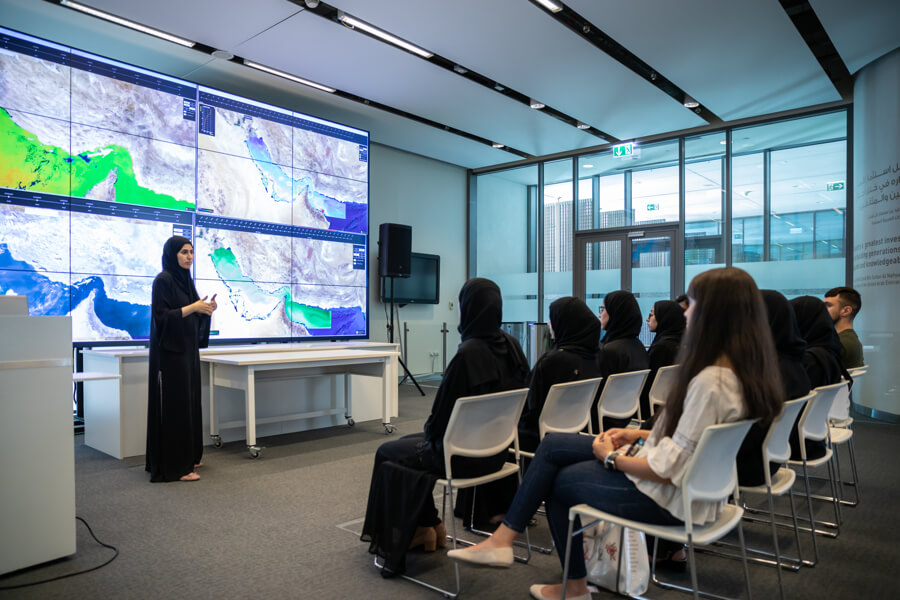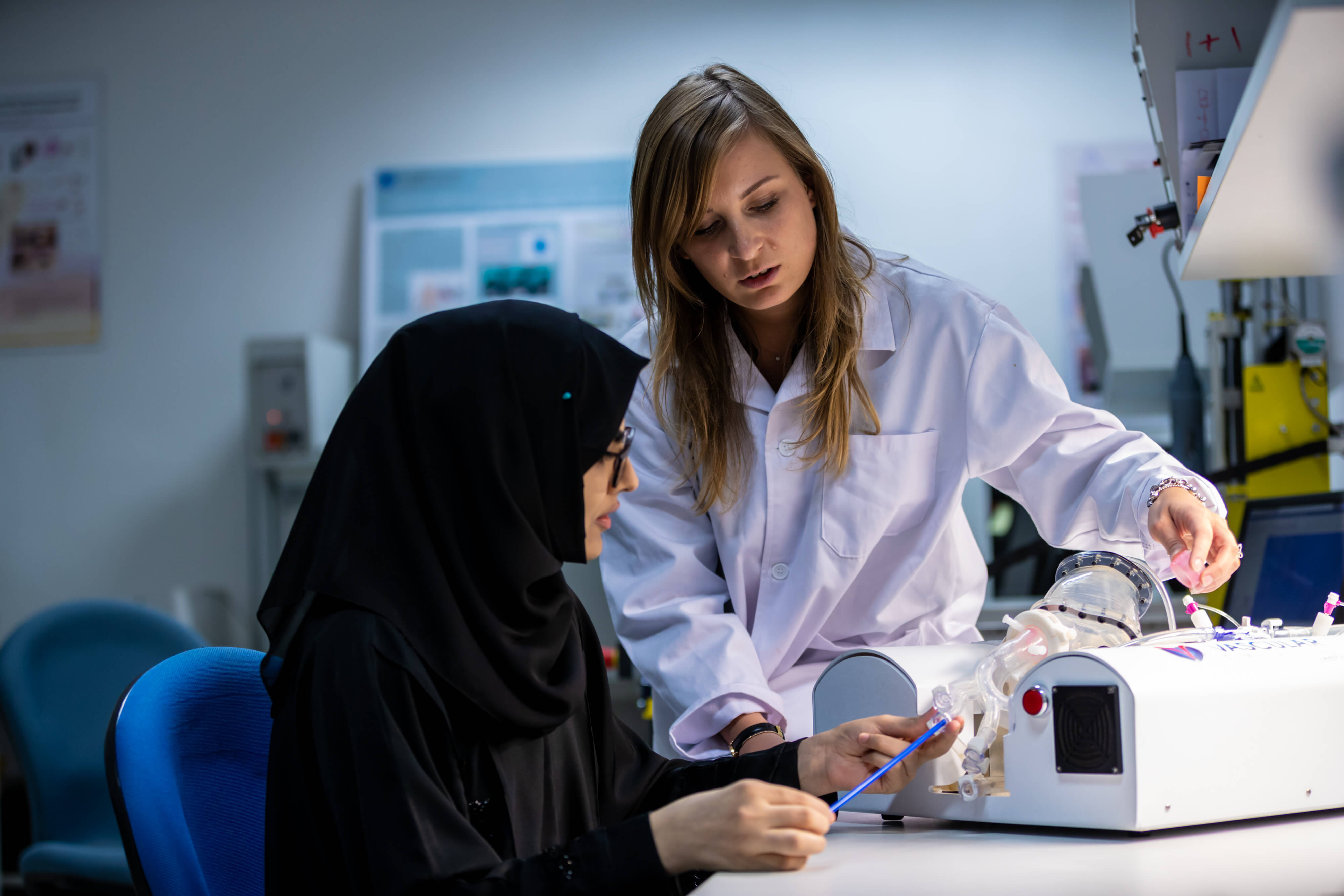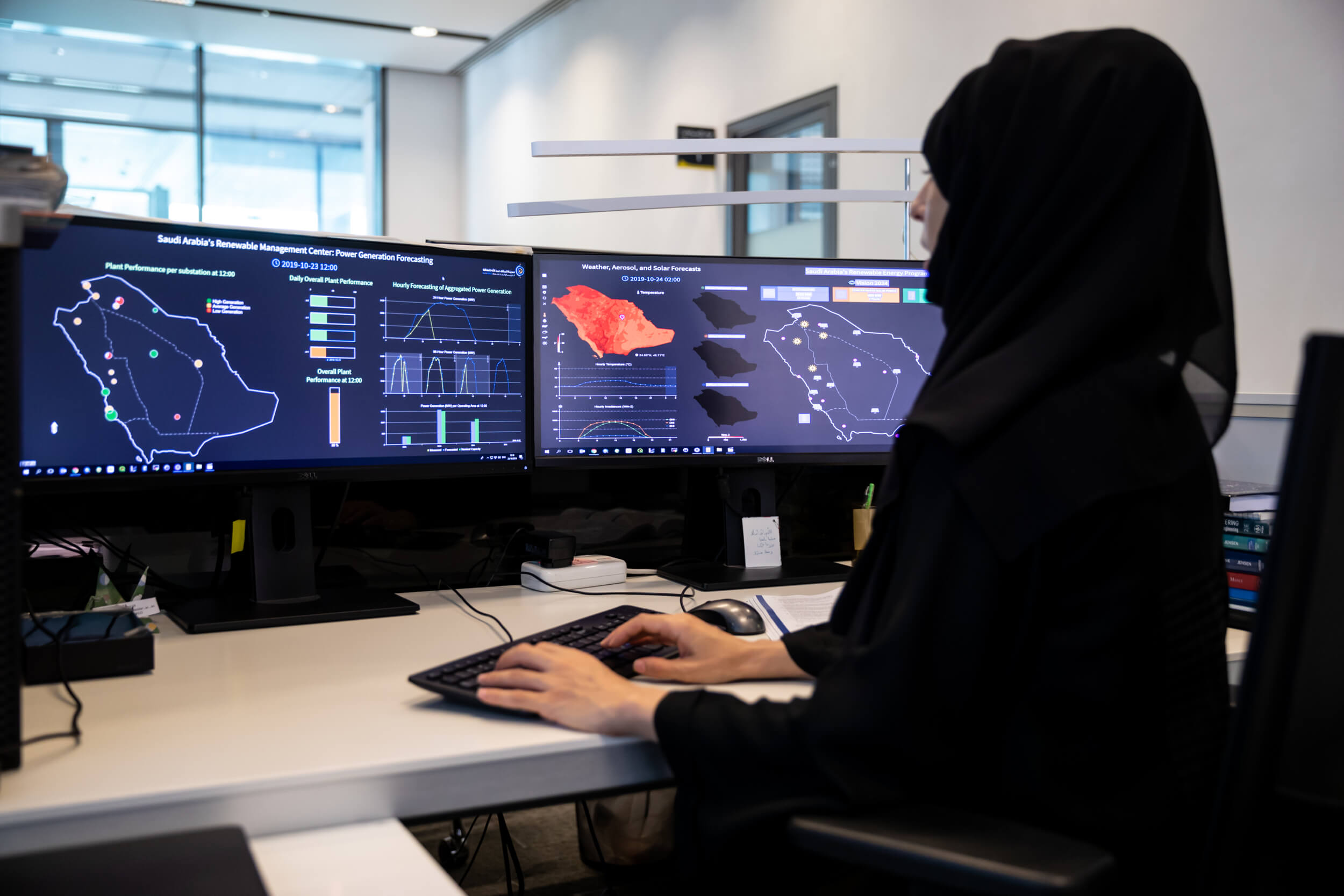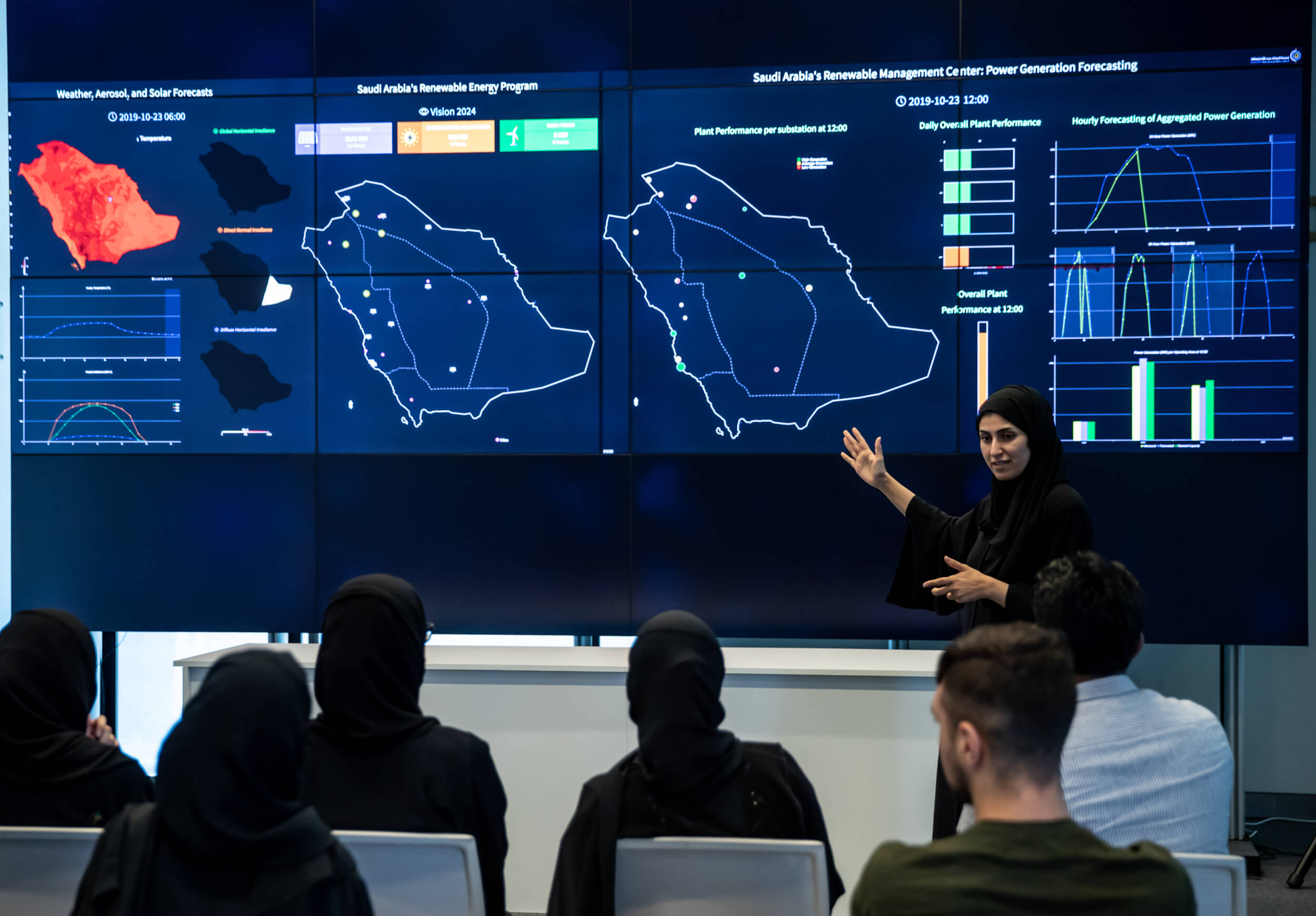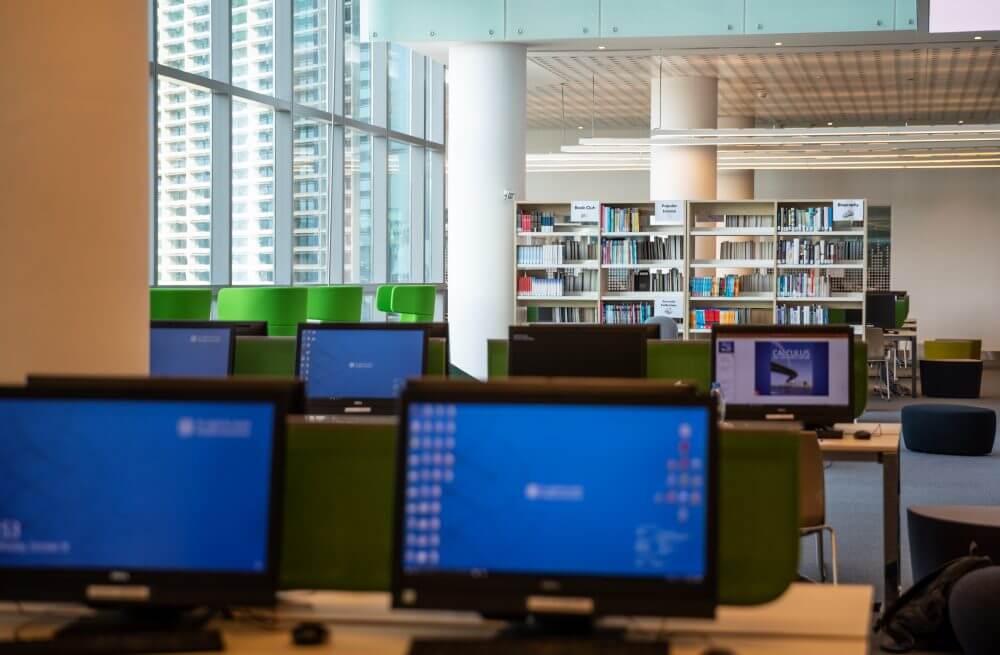Experts from Masdar Institute and Masdar Share Views on Cooperation between GCC and EU Countries
Abu Dhabi-UAE: 22 May, 2011 – Masdar Institute of Science and Technology delegates and experts from Masdar shared views on concrete cooperation activities on clean energy with the Gulf Cooperation Council (GCC) during a meeting in Abu Dhabi as well as at the EU-GCC Clean Energy Network second discussions group meeting at Brussels.
Held on 8 May in Abu Dhabi and from 11-12 May in Brussels, the meetings brought together delegates from both regions. The discussions indicated promise for the creation of stronger ties between EU organizations and researchers and their GCC counterparts.
The Brussels meeting highlighted the results and outcomes achieved by the network so far. Members discussed solid steps to achieve results in the fields of renewable energy sources, energy demand side management and energy efficiency, clean natural gas and related technologies, electricity interconnections and market integration. Several distinguished energy experts exchanged information on mobilizing and leveraging the potential of EU-GCC clean energy cooperation.
The EU-GCC Clean Energy Network was set up to advance the common interest between the EU and the GCC for strategic energy cooperation. As the lead research representative for the Network, Masdar Institute works together with the EU consortium to create, operate, promote and disseminate information and proposals and sustainable strategies of the Clean Energy Network. Masdar Institute was selected as the regional representative for EU-GCC Clean Energy Network earlier this year based on presentations by Gulf research institutions to the energy team on the GCC. Masdar Institute’s partners in the GCC include Sultan Quboos University (Oman): Renewable & Sustainable Energies Research Group, Arabian Gulf University (Bahrain), Kuwait Institute for Scientific Research: Renewable Energy Program, Qatar Foundation: Qatar Environment and Energy Research Institute and King Abdulaziz city for Science and Technology (Saudi Arabia).
During the meeting in Abu Dhabi, Masdar Institute members discussed in detail the successful collaboration between GCC countries and the willingness and mechanisms for dialogue between the various representatives of the GCC for the Energy Network.
Masdar Institute delegates Hamza Kazim, Vice-President, Operations & Finance; Dr. Scott Kennedy, Associate Dean for Research; and Dr. Sgouris Sgouridis, Assistant Professor from Masdar Institute, met GCC delegates including Dr Sulaiman AlMayman, from the Energy Research Institute (ERI) – King Abdulaziz City for Science and Technology (KACST); Dr. Rabi Mohtar, Executive Director of Qatar Environment and Energy Research Institute; and Professor. Adel Gastli, Director of Quality Assurance Office, Oman.
At the Brussels meeting, Dr. Rabia Ferroukhi, Energy Technology Expert, EU-GCC Clean Energy Network, chaired a session on renewable energy sources during the first day of the event, while Dr. Othman Zarzour, Project Manager, Masdar, and Dr. Yasser AlSaleh of Masdar Institute, participated in a session on carbon capture and storage.
Dr. Ferroukhi, who was the coordinator of the Renewable Energy Discussion Group, gave a presentation on the state of play of renewable energy in the GCC countries. She described progress in REN project implementation and planned projects as well as recent institutional developments in each country.
Dr. Zarzour, Coordinator of the Carbon Capture and Storage (CCS) Discussion Group, presented an update on the progress of forming the Network in terms of attracting experts and establishing industry links in the GCC. A quick overview of barriers and enablers of CCS in the GCC countries was also shared with participants.
Dr. Nawal Al Hosany, Associate Director of Sustainability at Masdar, offered a presentation at a session titled ‘Energy Efficiency/Demand Side Management’. She was the coordinator for the Energy Efficiency and Demand Side Management Working Group. Dr. Sgouris also participated in the session while Mr. Kazim, presented a paper titled ‘Enhancing GCC Participation in the Network’.
As the key partner institution of the GCC, Masdar Institute facilitated a workshop that highlighted the value that the Network provides as perceived by its stakeholders. The diversity of opinion that was evident indicates that the Network has an important role to play in various areas including the development of an R&D ecosystem in the GCC with focus on coordinating funding opportunities for research along with aligning regulatory perspectives for the support of clean energy and providing a platform for project coordination.
Mr. Kazim, Dr. Kennedy and Dr. Sgouridis discussed during the workshop how Masdar Institute could prove to be an effective tool in developing clean energy. Mr. Kazim discussed how to enhance GCC participation in the network while Dr. Kennedy led a roundtable discussion based on the focus areas of the Network.
Dr. Sgouris Sgouridis facilitated the discussions at one of the round-tables on the first day of the EU-GCC meeting. On the second day, he made a presentation titled ‘Energy Management with Demand Response Incentive Schemes: Learning from the Masdar Experience’ at a discussion group on ‘Demand Side Management’. In his closing remarks, he also underlined the importance of demonstrating active collaboration between the EU and GCC countries at future events.
Leading a workshop discussion on prioritising networking between the two blocs, Dr. Scott Kennedy identified potential areas such as development of an EU-GCC R&D ecosystem, increasing technical capacity for clean energy projects, building institutional capacity for policy-making and targeted funding of clean energy R&D, enhancing exchange of information and awareness of clean energy technologies and policies, as well as overcoming barriers in clean energy project finance.
Hamza Kazim, Vice-President, Operations & Finance -MI,said: “We are really excited to support the development of the Network in the GCC, work along and exchange expertise and knowledge from our partner institutions including Qatar Foundation, KACST, KISR, Sultan Qaboos University, and engage with government and industry stakeholders including the GCC energy group.
“Our strong political and cultural relationship between the GCC countries will help accelerate the development of a strong network for research and development in future energy with our partners. Our GCC research institutions have strong research capabilities. We will be able to demonstrate that through joint research and closer collaborations to have our print on the world map for future energy.”
Masdar Institute, an independent, research-driven graduate institute developed with the ongoing support and cooperation of the Massachusetts Institute of Technology, focuses on the science and engineering of advanced alternative energy, environmental technologies and sustainability. The graduate programs integrate education, research and scholarly activities to prepare graduate students to be innovators, creative scientists, researchers and critical thinkers in the areas of technology development, systems integration and policy.
As a crucial source of research and development, the Institute is fundamental to Masdar’s core objectives of developing Abu Dhabi’s knowledge economy and finding solutions to humanity’s toughest challenges.
-ENDS-
About Masdar Institute
Masdar Institute of Science and Technology (Masdar Institute) was established by the government of Abu Dhabi as a not-for-profit, private graduate university to develop indigenous R&D capacity in Abu Dhabi addressing issues of importance to the region.
In collaboration with the Massachusetts Institute of Technology (MIT), Masdar Institute has developed an academic and research platform that articulates its mission and vision according to critical energy and sustainability challenges.
An important characteristic of Masdar Institute is its focus on complex real-world problems that require a multidisciplinary approach for the development of solutions from an integrated technology, systems and policy perspective. This multi-interdisciplinary and integrated approach is supported by the structure of its academic programs and by the emphasis placed on engaging external partners from industry, government, and other academic institutions in collaborative activities.
Masdar Institute offers degrees in:
MSc Engineering Systems and Management
MSc Computing and Information Science
MSc Materials Science and Engineering
MSc Mechanical Engineering
MSc Water and Environmental Engineering
MSc Microsystems Engineering
MSc Electrical Power Engineering
MSc Chemical Engineering
Interdisciplinary Doctoral Degree PhD program
For more information please visit our website
For more information contact:
Name: Sheerin Al Shinawy
Email: salshinawy@masdar.ac.ae
Phone: +971 02 8109371


